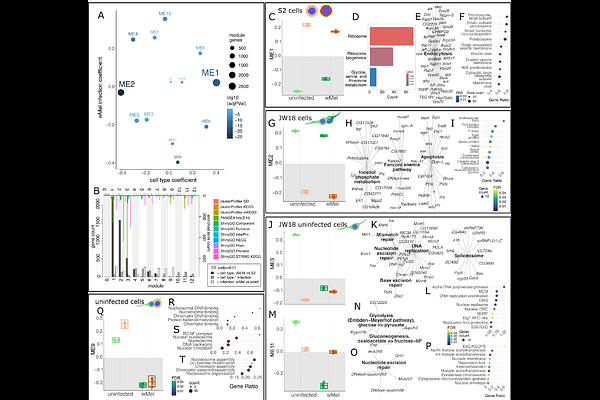Wolbachia induces host cell identity changes and determines symbiotic fate in Drosophila

Wolbachia induces host cell identity changes and determines symbiotic fate in Drosophila
Jacobs, J.; Mirchandani, C. D.; Seligmann, W. E.; Sacco, S.; Escalona, M.; Green, R. E.; Russell, S.
AbstractMany host-associated bacteria influence the differentiation of their eukaryotic host cells. The association between Wolbachia pipientis and Drosophila melanogaster offers a model for understanding how host-microbe gene expression co-evolves. Using Wolbachia-infected Drosophila cell lines, we show that the wMel strain alters host cell states, inducing novel gene expression programs that diverge from known cell types. Transcriptomic co-expression network analysis identified gene expression modules specific to each cell type and infection state, and revealed that wMel tailors its gene expression to host context. In macrophage-like host cells, wMel expresses pathogenic effectors, whereas in neuron-like cells, wMel upregulates metabolic genes. Micro-C chromatin contact data revealed that many of these infection-induced changes are epigenetically encoded, with wMel infection conferring reduced chromatin contacts and widespread transcriptional derepression in D. melanogaster. These findings show that the nature of Wolbachia symbiosis, mutualistic or pathogenic, emerges from host cell environments and suggest new paths for engineering host-specific microbial phenotypes.